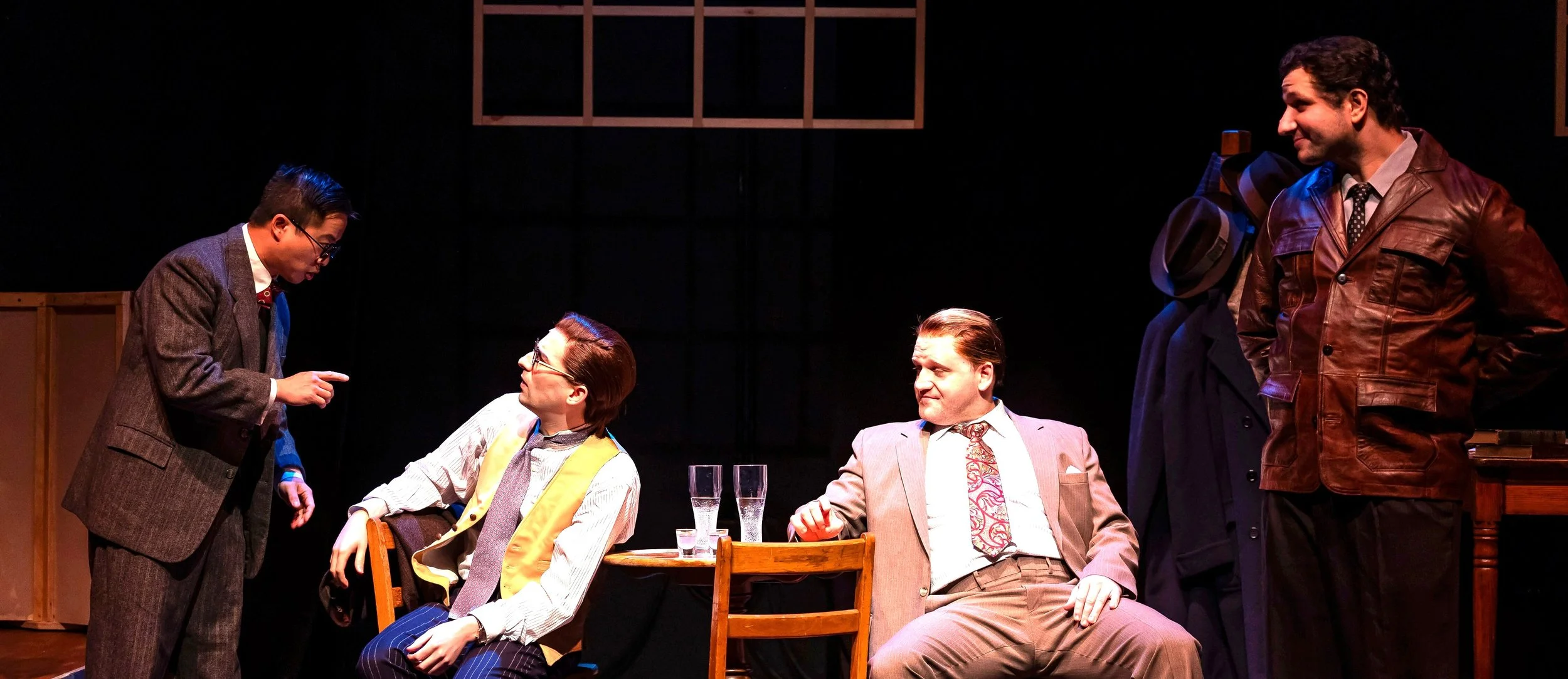Amsterdam’s red-light district, circa 1956. A man walks into a bar and chews on the question: What does it mean to fall from grace? And, as a man who is having a few drinks in a bar and talking to strangers, he will ask many more questions, sometimes personal and often philosophical. In The Fall, by Albert Camus, a French philosopher who won the Nobel Prize in Literature in 1957 and is considered the father of existentialism, the man in the bar is Jean-Baptiste Clamence, a former Parisian lawyer who has himself fallen from grace.
The Strangest
The Fourth Street Theater is currently unrecognizable, as the theater company known as Semiotic Root has transformed the space into an intimate storytelling café—the sort found in North Africa. A patchwork of Persian carpets covers every inch of the floor, and hanging lanterns cast a warm glow across the carved wooden tables and plush floor cushions. The scent of strong coffee wafts through the air, and audience members are invited to help themselves to a cup. The setting is for playwright Betty Shamieh’s The Strangest, an absurdist murder mystery inspired by the unnamed Arab killed in Albert Camus’ classic novel, The Stranger, which is an emblem of mid-20th-century French existentialism.








